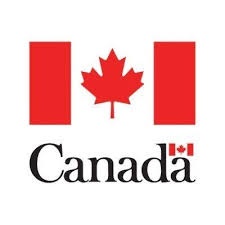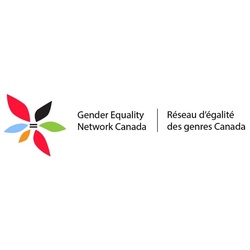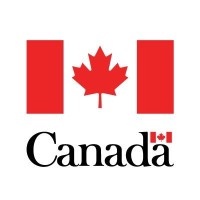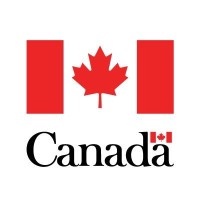
Closed
Zero Emission Vehicle Infrastructure (ZEVIP) — Indigenous organizations
Last Update: October 27, 2025
Canada
Supports Indigenous organizations installing zero-emission vehicle charging infrastructure
Grant and Funding
At a glance
Funding available
Financing goals
Increasing community impact
Integrate new technologies
Reduce the ecological footprint
See more
Eligible Funding
- Maximum amount : 2,000,000 $
- Up to 75% of project cost
Timeline
- Receipt of requests is now closed
Eligible candidates
Eligible Industries
- Utilities
- Construction
- Transportation and warehousing
- Other services (except public administration)
- Public administration
Location
- Canada
Legal structures
- Non-profit
- Public or Parapublic institution
- For-profit business
Annual revenue
- All revenue ranges
Organisation size
- All organization sizes
Audience
- Indigenous Peoples
Non-profit candidates
Sector of operation
- Environment
- Economic, Social and Community Development
Target groups
- Indigenous peoples
- Rural / Remote communities
- Business owners / entrepreneurs
Revenue structures
- All structures
Scope
- National
Overview
The Zero Emission Vehicle Infrastructure Program (ZEVIP) — Indigenous Organizations stream provides up to $2 million per project to support the deployment of electric vehicle charging stations and hydrogen refuelling stations for Indigenous organizations in Canada. The program aims to increase the availability of zero-emission vehicle infrastructure by funding new installations or expansions in public places, workplaces, multi-unit residential buildings, and for vehicle fleets.
Activities funded
- Installation of new electric vehicle charging stations for public use.
- Deployment of charging infrastructure in multi-unit residential buildings.
- Development of charging options at workplaces or fleet locations.
- Establishment of hydrogen refuelling stations for various vehicle types.
- Expansion of existing zero-emission vehicle infrastructure to increase capacity and accessibility.
Examples of admissible projects:
$ 1,825,000
Hydrogen fueling solution for electric transit and staff fleet vehicles
$ 295,000
Adding charging infrastructure for Indigenous housing association apartment blocks
$ 480,000
Modernizing charging infrastructure for an Indigenous canoe-tourism fleet operation
$ 570,000
Expansion of public EV charging network in retail and visitor areas
$ 900,000
Deployment of fast-charging EV stations at a community health hub
$ 250,000
EV charging stations at Indigenous-owned professional offices and shared workspaces
Eligibility
- The applicant must be an Indigenous community, a business or organization with clear Indigenous ownership and control, a First Nations band or council under the Indian Act, a tribal council, or an Inuit organization.
- The applicant must demonstrate Indigenous ownership and controlling interest, which may be shown through inclusion in official directories.
- The applicant organization must be validly incorporated or registered, providing supporting documentation as necessary.
- The project must increase localized charging or hydrogen refueling opportunities in Canada and be a new or expanded permanent installation.
- The project infrastructure must be owned and the bulk of expenditures incurred by the applicant organization.
Who is eligible?
- Indigenous communities
- For-profit businesses with Indigenous ownership and control
- Not-for-profit organizations with Indigenous ownership and control
- First Nations bands or councils under the Indian Act
- Tribal councils
- Inuit organizations
Who is not eligible
- Softwood lumber companies and those that are vertically integrated with softwood lumber companies.
Eligible expenses
- Salaries and benefits for staff directly involved in the project.
- Professional service fees (such as engineering, construction, technical, management, installation, testing, commissioning, training, marketing, data collection, logistics, printing, and distribution).
- Reasonable travel expenses including transportation, meals, and accommodation for project purposes.
- Capital expenses including equipment and infrastructure required for the project.
- Rental or leasing costs associated with project implementation.
- Licence fees and required permits for project execution.
- Expenses related to environmental assessments necessary for the project.
- Honoraria and ceremonial costs for Indigenous recipients involving Indigenous peoples.
- GST, PST, and HST, net of any tax rebate entitlement.
- Overhead expenses directly related to the project, up to 15% of eligible expenditures.
Eligible geographic areas
- Projects must be located in Canada.
How to apply
1
Confirm organization eligibility
- Ensure your organization qualifies as an Indigenous community, First Nation, Inuit, Métis, or an Indigenous-owned business or organization
- Consult Indigenous Services Canada’s Indigenous Business Directory or the First Nation Profile for eligibility confirmation
2
Prepare supporting documentation
- Compile official documents such as articles of incorporation or registration to validate legal status, if applicable
- Prepare proof of Indigenous ownership and controlling interests when required
3
Define eligible project
- Identify eligible infrastructure projects such as EV charging stations or hydrogen refuelling facilities that meet program requirements
- Ensure the project increases localized charging or refuelling opportunities and meets technical criteria
4
Estimate project costs and funding needs
- Calculate total project costs and determine the level of funding required according to program limits
- Compile a budget including eligible expenditures such as capital costs, professional services, and overhead
5
Complete the application package
- Prepare the application form following ZEVIP guidelines and requirements
- Attach all required documentation and budget information
- Review for completeness and compliance with program criteria
6
Submit the application
- Submit the application and all required documents through the program’s submission process, before the application period closes
- Monitor any relevant updates on the program calendar for future opportunities
Additional information
- This funding stream is currently fully allocated and not accepting new applications.
- Service standards include timelines for acknowledging applications and issuing decisions.
- The program is committed to offering flexible timelines and removing barriers to increase Indigenous community access.
- For future updates on funding opportunities, applicants are advised to consult the program calendar.
Contacts
zev-infra-vez@nrcan-rncan.gc.ca
Canada
Apply to this program
Frequently Asked Questions about the Zero Emission Vehicle Infrastructure (ZEVIP) — Indigenous organizations Program
Here are answers to the most common questions about the Zero Emission Vehicle Infrastructure (ZEVIP) — Indigenous organizations. This section explains what the program is, how much funding is available, eligibility requirements, application deadlines, and other important details to help you determine if this grant is right for your business.
What is the Zero Emission Vehicle Infrastructure (ZEVIP) — Indigenous organizations?
How much funding can be received?
Who is eligible for the Zero Emission Vehicle Infrastructure (ZEVIP) — Indigenous organizations program?
What expenses are eligible under Zero Emission Vehicle Infrastructure (ZEVIP) — Indigenous organizations?
Who can I contact for more information about the Zero Emission Vehicle Infrastructure (ZEVIP) — Indigenous organizations?
Where is the Zero Emission Vehicle Infrastructure (ZEVIP) — Indigenous organizations available?
Is the Zero Emission Vehicle Infrastructure (ZEVIP) — Indigenous organizations a grant, loan, or tax credit?
Apply to this program
More programs like this

Grant and FundingClosed
Canada Public Transit Fund
Housing, Infrastructure and Communities CanadaSupports long-term public transit and active transportation infrastructure development

Grant and FundingOpen
Active Transportation Fund
Housing, Infrastructure and Communities CanadaSupports infrastructure projects for safer, more accessible active transportation

Partnering and CollaborationGrant and Fundingarchived
Equality for Sex, Sexual Orientation, Gender Identity and Expression Program
Women and Gender Equality Canada (WAGE)Supports equality initiatives for sex, sexual orientation, and gender identity

Grant and FundingClosed
Crime Prevention Action Fund (CPAF)
Public Safety Canada (PSC)Supports evidence-based crime prevention initiatives for at-risk communities

Grant and FundingClosed
Substance Use and Addictions Program (SUAP)
Health CanadaSupports innovative projects addressing substance use prevention and treatment

Grant and FundingClosed
Rail Safety Improvement Program (RSIP) - Research and Education Component
Transport CanadaFunding for rail safety infrastructure, research, and education projects

Grant and FundingClosed
Enhanced Road Safety Transfer Payment Program (ERSTPP)
Transport CanadaFunds projects to enhance road safety and reduce traffic injuries

Grant and FundingClosed
Age Well at Home (AWAH) - In-Home Support Pilot Project Stream
Employment and Social Development Canada (ESDC)Supports volunteer-based home services for vulnerable Canadian seniors

Grant and FundingClosed
Canada Nature Fund for Aquatic Species at Risk (CNFASAR)
Fisheries and Oceans Canada (DFO)Supports recovery and protection of aquatic species at risk

Other SupportGrant and FundingClosed
Artificial Intelligence for Canadian Energy Innovation
Natural Resources Canada (NRCan)Supports AI-driven solutions accelerating Canadian energy technology innovation
Sign up to our platform to access the Zero Emission Vehicle Infrastructure (ZEVIP) — Indigenous organizations information sheet for free
Get access to 4,000+ programs, practical guides, personalized alerts, and an AI assistant to support your grant applications.